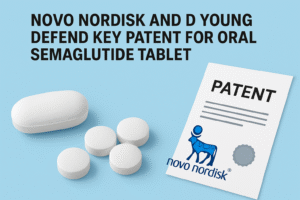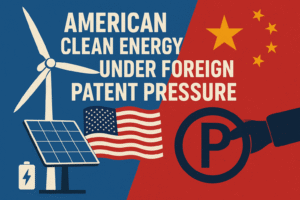India has reaffirmed its commitment to affordable medicines and public health safeguards in its latest Free Trade Agreement (FTA), signed on **July 24**. The government announced that the deal does **not include provisions** for **patent term extensions** or **data exclusivity**, commonly sought by multinational pharmaceutical companies to extend their market monopolies.
The **Ministry of Commerce and Industry** clarified that critical sections of the **Indian Patents Act, 1970** — notably **Section 3(d)** and **Section 3(b)** — will remain fully protected under the FTA. These provisions are key to India’s rejection of “**evergreening**” practices, which involve patenting minor modifications of existing drugs to delay generic competition.
> 🔗 [Section 3(d) – Indian Patents Act](https://ipindia.gov.in/writereaddata/Portal/Images/pdf/Patent_Amendment_Act_2005.pdf)
**Section 3(d)** allows patents only for new drug forms that demonstrate **enhanced efficacy**, while **Section 3(b)** restricts patents for inventions that are **contrary to public interest** or lack significant therapeutic benefit.
> “India’s patent regime remains intact. There is no obligation under the new agreement to extend patent terms or introduce data exclusivity for pharmaceuticals or agrochemicals,” the ministry said in an official release.
The government emphasized that the FTA **does not include**:
* **Patent term extensions** to compensate for regulatory delays.
* **Data exclusivity** that would prevent Indian regulators from using innovator data to approve generics.
* **Patent linkage**, which ties drug approval to patent status.
* **Automatic injunctions** that delay generic entry during litigation.
> 🔗 [Understanding Data Exclusivity – WHO](https://www.who.int/news-room/questions-and-answers/item/intellectual-property-data-exclusivity)
These exclusions are a win for India’s **USD 25 billion generic drug industry**, which supplies nearly **50% of its pharmaceutical output** to global markets, including **life-saving drugs for HIV/AIDS, tuberculosis, and cancer** in low- and middle-income countries.
> 🔗 [India’s Generic Pharmaceutical Sector – Brookings](https://www.brookings.edu/articles/the-indian-pharmaceutical-industry/)
The deal follows similar resistance by India during talks with the **European Free Trade Association (EFTA)** — comprised of **Switzerland, Norway, Iceland, and Liechtenstein** — where India successfully opposed attempts to insert stricter IP protections in their FTA finalized in **March 2023**.
> 🔗 [EFTA–India FTA Overview](https://www.efta.int/free-trade/Free-Trade-Agreement/India)
Pressure to include such IP provisions often comes from countries with large pharmaceutical industries, including the **UK** and **Switzerland**, home to global players like **AstraZeneca**, **GlaxoSmithKline (GSK)**, **Novartis**, and **Roche**.
However, India’s stance remains consistent with its obligations under the **World Trade Organization’s (WTO) TRIPS Agreement**, which does not require countries to implement **data exclusivity** or **patent extensions**. Experts argue that such measures are “**TRIPS-plus**” provisions that go beyond international norms.
> 🔗 [WTO TRIPS Agreement](https://www.wto.org/english/tratop_e/trips_e/trips_e.htm)
India also draws strength from the **Doha Declaration on TRIPS and Public Health (2001)**, which affirms the right of WTO members to protect public health and promote access to medicines.
> 🔗 [Doha Declaration – WTO](https://www.wto.org/english/thewto_e/minist_e/min01_e/mindecl_trips_e.htm)
“This agreement reinforces India’s role as the ‘pharmacy of the developing world’ by ensuring that domestic laws prioritize **access to affordable medicines** over extended monopolies,” said a Delhi-based trade policy expert.
The FTA will undergo legislative procedures before coming into effect, expected within the next year. For now, the government’s firm stance is seen as a strategic move to protect its pharmaceutical export economy and uphold public health imperatives.
The **Ministry of Commerce and Industry** clarified that critical sections of the **Indian Patents Act, 1970** — notably **Section 3(d)** and **Section 3(b)** — will remain fully protected under the FTA. These provisions are key to India’s rejection of “**evergreening**” practices, which involve patenting minor modifications of existing drugs to delay generic competition.
> 🔗 [Section 3(d) – Indian Patents Act](https://ipindia.gov.in/writereaddata/Portal/Images/pdf/Patent_Amendment_Act_2005.pdf)
**Section 3(d)** allows patents only for new drug forms that demonstrate **enhanced efficacy**, while **Section 3(b)** restricts patents for inventions that are **contrary to public interest** or lack significant therapeutic benefit.
> “India’s patent regime remains intact. There is no obligation under the new agreement to extend patent terms or introduce data exclusivity for pharmaceuticals or agrochemicals,” the ministry said in an official release.
The government emphasized that the FTA **does not include**:
* **Patent term extensions** to compensate for regulatory delays.
* **Data exclusivity** that would prevent Indian regulators from using innovator data to approve generics.
* **Patent linkage**, which ties drug approval to patent status.
* **Automatic injunctions** that delay generic entry during litigation.
> 🔗 [Understanding Data Exclusivity – WHO](https://www.who.int/news-room/questions-and-answers/item/intellectual-property-data-exclusivity)
These exclusions are a win for India’s **USD 25 billion generic drug industry**, which supplies nearly **50% of its pharmaceutical output** to global markets, including **life-saving drugs for HIV/AIDS, tuberculosis, and cancer** in low- and middle-income countries.
> 🔗 [India’s Generic Pharmaceutical Sector – Brookings](https://www.brookings.edu/articles/the-indian-pharmaceutical-industry/)
The deal follows similar resistance by India during talks with the **European Free Trade Association (EFTA)** — comprised of **Switzerland, Norway, Iceland, and Liechtenstein** — where India successfully opposed attempts to insert stricter IP protections in their FTA finalized in **March 2023**.
> 🔗 [EFTA–India FTA Overview](https://www.efta.int/free-trade/Free-Trade-Agreement/India)
Pressure to include such IP provisions often comes from countries with large pharmaceutical industries, including the **UK** and **Switzerland**, home to global players like **AstraZeneca**, **GlaxoSmithKline (GSK)**, **Novartis**, and **Roche**.
However, India’s stance remains consistent with its obligations under the **World Trade Organization’s (WTO) TRIPS Agreement**, which does not require countries to implement **data exclusivity** or **patent extensions**. Experts argue that such measures are “**TRIPS-plus**” provisions that go beyond international norms.
> 🔗 [WTO TRIPS Agreement](https://www.wto.org/english/tratop_e/trips_e/trips_e.htm)
India also draws strength from the **Doha Declaration on TRIPS and Public Health (2001)**, which affirms the right of WTO members to protect public health and promote access to medicines.
> 🔗 [Doha Declaration – WTO](https://www.wto.org/english/thewto_e/minist_e/min01_e/mindecl_trips_e.htm)
“This agreement reinforces India’s role as the ‘pharmacy of the developing world’ by ensuring that domestic laws prioritize **access to affordable medicines** over extended monopolies,” said a Delhi-based trade policy expert.
The FTA will undergo legislative procedures before coming into effect, expected within the next year. For now, the government’s firm stance is seen as a strategic move to protect its pharmaceutical export economy and uphold public health imperatives.




